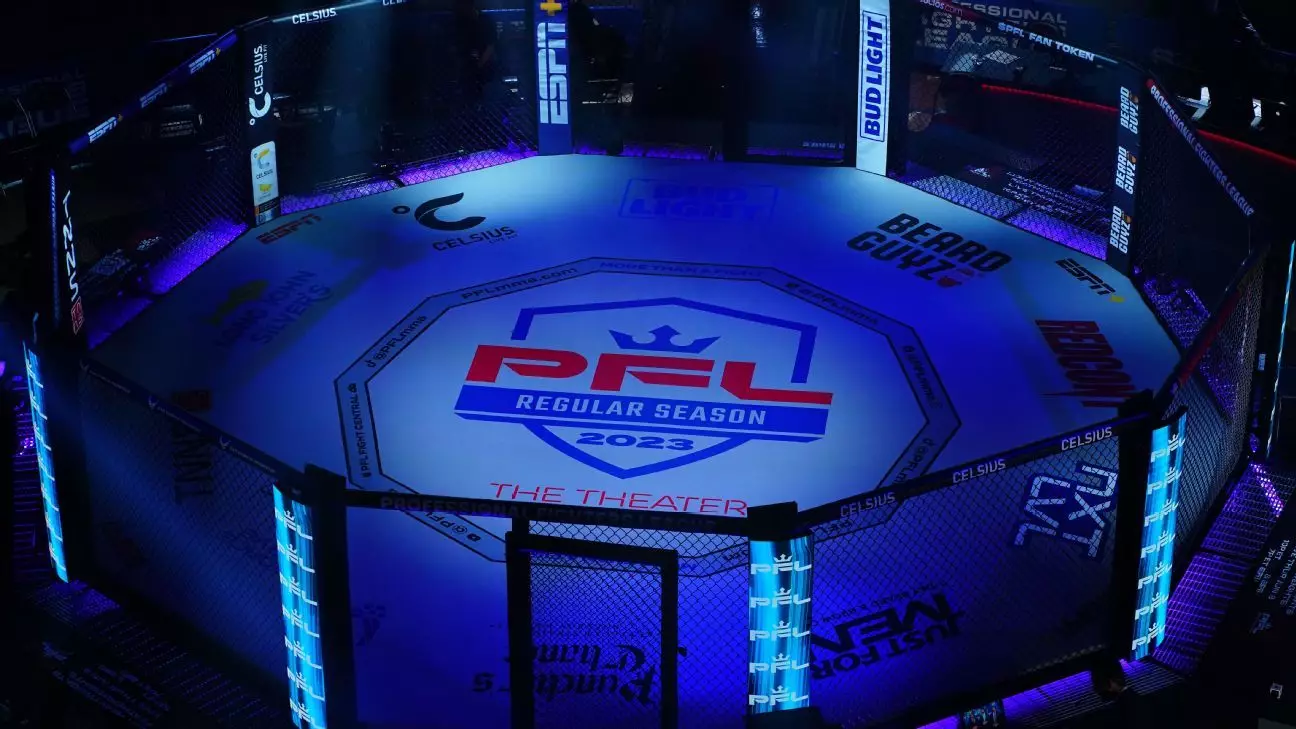The Professional Fighters League (PFL) is not just resting on its laurels; as it gears up for 2025, it is prepared to make significant alterations to its structure and branding. The sports world, particularly mixed martial arts (MMA), is witnessing a transformative moment as PFL embarks on a new trajectory that promises to evolve the competitive scene in unprecedented ways.
One of the most noteworthy changes is the replacement of the traditional season format that fans have come to associate with PFL since its inception in 2018. Instead of the multipart season and playoff experience, PFL will pivot to holding a streamlined World Tournament format that features three single-elimination matches. Each of the eight weight classes will feature eight fighters, with the tournament set to take place from April to August. According to CEO Peter Murray, this new format emphasizes meritocracy and gives fighters „one shot“ at the title, ostensibly placing greater pressure on athletes to perform.
By adopting this compressed competition angle, PFL aims to spark broader audience interest and enhance fan engagement. The single-elimination format not only elevates the stakes for fighters but also simplifies the viewing experience for fans who can follow a more direct and thrilling path to the championship.
In a bold strategic move, the PFL announced that it would integrate the Bellator MMA brand into its operational framework beginning in 2025. After acquiring Bellator in late 2023, the PFL allowed it to operate as a separate entity throughout 2024. This will change drastically next year as the Bellator promotion will cease to exist, and the PFL will assume responsibility for its fighters. This is not merely a takeover on paper; it symbolizes an ambitious goal to unify champions across both brands‘ rosters while ceasing the distinction between PFL and Bellator champions.
The integration poses questions about the fate of Bellator’s current titleholders. The PFL has yet to clarify whether these fighters would transition seamlessly into the PFL roster or be compelled to compete for vacant titles. This uncertainty might unsettle champions and fans alike but also creates intriguing matchups that can pave the way for a vibrant competitive milieu.
In addition to restructuring its immediate competition format, the PFL is also ambitiously expanding its global footprint. Set to launch PFL Africa in the summer, the organization aims to capitalize on emerging MMA markets and further solidify its international presence. This global outreach echoes through its existing PFL Europe and PFL Middle East and North Africa (MENA) leagues, as well as forthcoming plans for PFL Pacific in Australia.
Murray has reinforced the rationale behind these expansions, emphasizing the importance of blending diverse fighting styles and cultural influences into the PFL brand. This strategy not only broadens its audience but also enhances the quality of competition by tapping into different fighting disciplines and backgrounds.
As with any major organizational shift, the PFL will navigate through challenges associated with talent retention and contract negotiations. Notably, high-profile Bellator fighters have expressed concerns regarding the handling of their careers post-acquisition. Gitard champions such as Patricio „Pitbull“ Freire and Gegard Mousasi have already departed the organization, leaving questions about the PFL’s strategy for maintaining top-tier talent.
Murray defended the high turnover rate, which he admits can exceed 30% annually, claiming that while consistency in talent is essential, fresh faces are equally valuable to keep the competition invigorated. This balancing act becomes crucial as the PFL seeks to merge two rosters while establishing its identity.
The financial aspects of the new format are equally striking. The PFL plans to widen its payout structure for fighters, announcing that it will distribute over $20 million in total prize money for the upcoming year. While the previous season featured six weight classes vying for $1 million in the finals, the revamped system will offer eight classes with a $500,000 prize per final match. This emphasis on increased prize money illustrates PFL’s commitment to not only uplift fighters financially but also attract elite talent in the sport.
Furthermore, the future of pay-per-view events remains uncertain, particularly regarding the much-publicized heavyweight match between Francis Ngannou and Renan Ferreira. Although Ngannou’s involvement in the PFL’s future ambitions, especially with the forthcoming PFL Africa, is expected to be significant, the shifts in audience engagement and revenue models will determine the company’s approach to pay-per-view formats.
The PFL is steering its ship into a bold, ambitious future. Through a revamped tournament structure, the consolidation of talent, and an expansive global vision, the organization is restructuring to elevate the competition’s quality while remaining mindful of its fan base. As it embarks on this journey, stakeholders and fans alike will undoubtedly keep a watchful eye on how these changes play out.


Napsat komentář